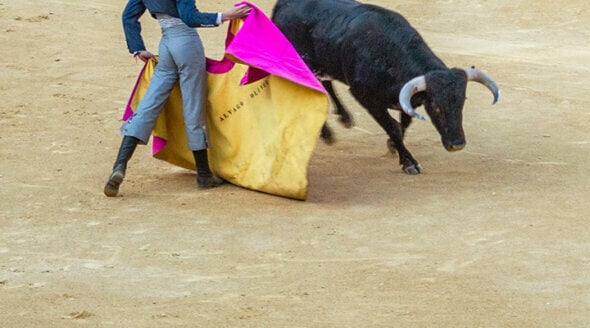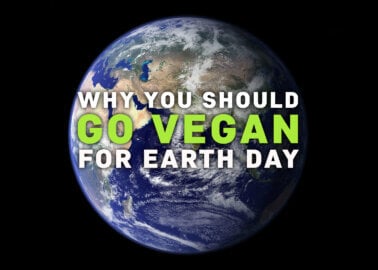Become a Game Changer: How to Build Muscle as a Vegan
More and more athletes around the globe are ditching meat, dairy, and eggs in favour of beans, tofu, quinoa, and spinach – but why?
A vegan diet is the winning formula for any athlete:
- Vegan food provides us with all the protein, complex carbohydrates, and other nutrients we need to get stronger and faster.
- Cutting out animal-derived foods improves cardiovascular health as well as recovery time in endurance athletes.
- A plant-based diet boosts our immune system, making us less susceptible to flu and other illnesses.
- Vegan food is 100% cholesterol-free, meaning it is healthier for our arteries and helps keep our hearts working properly.
Inspired by the documentary The Game Changers? Joining Novak Djokovic, Lewis Hamilton, and many other vegan athletes is easier than ever. Start building muscle with the vegan protein sources below.
The Best Vegan Sources of Protein
-
Seitan
Weighing in at the top, seitan (also referred to as wheat protein or vital wheat gluten) contains up to 30 grams of protein per 100 grams – more than beef, chicken, and pork. Check out local shops and restaurants for delicious seitan burgers, sausages, and other products.
-
Soya Protein
In just about every UK supermarket, you can find vegan soya sausages, nuggets, steaks, and burgers. If you can think of it, there’s a soya option out there. These foods can contain anywhere between 10 and 30 grams of protein per 100 grams. Plus, they are quick to prepare and taste great.
-
Pea Protein

If you’re soya-intolerant, don’t worry. There are plenty of other options out there, such as the soya- and gluten-free Beyond Meat burgers and sausages made with pea protein, which contain between 10 and 30 grams of protein per 100 grams.
-
Nuts and Seeds

Peanuts, almonds, cashews, pecans, walnuts, pistachios, and their respective butters as well as hemp seeds, pumpkin seeds, sunflower seeds, linseed, sesame seeds, and chia seeds are high in healthy fats like omega 3 and contain up to 20 grams of protein per 100 grams.
-
Tempeh

Made from fermented soya, tempeh is a compact, meaty superfood loaded with vitamins and nutrients, including iron, magnesium, manganese, riboflavin, calcium, and phosphorous. It’s also packed with over 20 grams of protein per 100 grams and absorbs flavours well, so get marinating!
-
Tofu

This classic vegan staple made from soya is very versatile and can be used both as a meat substitute and in sauces, smoothies, quiches, dressings, and desserts. It has a similar nutritional profile to tempeh and is another heavy hitter, with up to 16 grams of protein per 100 grams. -
Pulses

Lentils, chickpeas, black beans, kidney beans, and haricot beans are often a daily staple of vegan athletes and exercise enthusiasts – and it’s easy to see why. You can use them in stews, curries, burgers, salads, falafel, hummus, and more. These small but mighty protein sources contain between 6 and 9 grams of protein per 100 grams.
The Best Vegan Sources of Complex Carbs
Your vegan protein is sorted – now you need some complex carbs, which are essential in any muscle-building programme to fuel the effort that leads to muscle growth. Choose potatoes, sweet potatoes, brown rice, and wholegrain pasta, noodles, and bread, which are excellent sources of energy.

Protein-Packed Meal Ideas
The only thing left is to get eating. We’ve put together the meal plan below, which amounts to more than 120 grams of protein.
Top tip: You can increase the protein content by replacing some of the carbs with more of the main protein source or simply increasing portion sizes.
Please bear in mind that this is a very simplified meal plan – make sure that you incorporate loads of fruits and veggies into and between your meals, too!
Breakfast – muesli (21 g protein)
Muesli (120 g)
Oat milk (250 ml)
Cocoa powder (1 Tbsp)
Ground linseed (1 Tbsp)
Chia seeds (1 Tbsp)
Mid-morning snack (20 g protein)
Seed and nut mix (100 g)
Lunch – peanut satay noodles (44 g protein)
Wholegrain noodles (150 g)
Peanut butter (1.5 Tbsp)
Soy sauce (1.5 tsp)
Vegan Thai green curry paste (1.5 tsp)
Tempeh (100 g)
Afternoon snack – avocado on toast (11 g protein)
Avocado (1 whole)
Seeded wholemeal bread (2 slices)
Dinner – chickpea curry (30 g protein)
Chickpeas (1 tin)
Coconut milk (250 ml)
Chopped tomatoes (200 g)
Brown rice or quinoa (150 g)
Salt, to taste
Pepper, to taste
Chilli powder (1 tsp)
Curry powder (1 1/2 Tbsp)
Grated fresh ginger (1 tsp)
Want to Put Your Newfound Vitality to the Test?
Get active for animals by joining the PETA Pack, our community of dedicated animal rights supporters who go the extra mile to raise funds to boost our life-changing campaigns:




